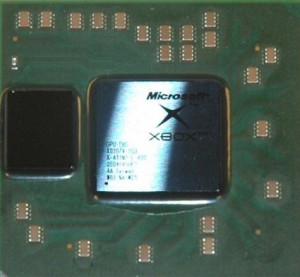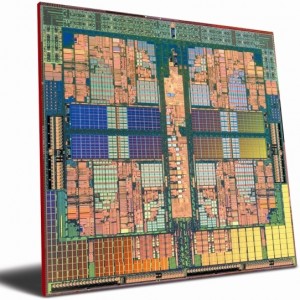Why It’s Time To Release The Next-Gen Console
 Rumors are once again swirling around concerning the next-gen Xbox unveiling. The media labeled Xbox 720 is speculated to be announced at the 2012 International Consumer Electronics Show this January. Of course, we’ve been hearing rumors of a new Xbox reveal preceding just about every major industry event for the last few years (and I actually think it’ll be unveiled at E3 2012); this year it might just happen. Quite frankly, the industry is pretty much ripe for a new console release, regardless if it’s Microsoft that announces theirs before Sony or vice versa, and here’s why:
Rumors are once again swirling around concerning the next-gen Xbox unveiling. The media labeled Xbox 720 is speculated to be announced at the 2012 International Consumer Electronics Show this January. Of course, we’ve been hearing rumors of a new Xbox reveal preceding just about every major industry event for the last few years (and I actually think it’ll be unveiled at E3 2012); this year it might just happen. Quite frankly, the industry is pretty much ripe for a new console release, regardless if it’s Microsoft that announces theirs before Sony or vice versa, and here’s why:
The Xbox 360 is six years old now with the PlayStation 3 following it by a mere year, while a facelift on the two consoles and the introduction of features such as Stereoscopic 3D and motion control devices (Move and Kinect) may have breathed new life into sales, the core CPUs and graphics processors are starting to show their age. Newer PC graphics cards are able to out-perform the capabilities of the home consoles by leaps and bounds, and while developers are having no problems finding new ways to squeeze just a little bit more performance out of these systems, developers and consumers can benefit greatly from a new system with far more powerful hardware. Six to eight core processors are now available (compared to the three and four core CPUs that the Xbox 360 and PS3 are using respectively), and multi-core graphics processors (GPUs) simply blow their console brethren out of the water.
 The core hardware inside the unit isn’t the only thing suffering; faster Ethernet adapters are now available to connect a system to your home network (and subsequently, the internet) at 1000 megabits per second instead of the current platform’s paltry 100Mbps. Wireless networking is faster too with the newly (and by new I mean two years ago) adopted Wireless N standard. System memory (RAM) is far faster in comparison to the older systems, and larger amounts of memory increase the speed and capability of a unit significantly.
The core hardware inside the unit isn’t the only thing suffering; faster Ethernet adapters are now available to connect a system to your home network (and subsequently, the internet) at 1000 megabits per second instead of the current platform’s paltry 100Mbps. Wireless networking is faster too with the newly (and by new I mean two years ago) adopted Wireless N standard. System memory (RAM) is far faster in comparison to the older systems, and larger amounts of memory increase the speed and capability of a unit significantly.
Next, let’s consider lifecycle planning. Even if the Xbox 360 and PS3 are going to last for ten years, it has always been practice to release your next gen system about two years before you stop supporting the old. This allows a company to continue to pull in revenue (to help offset the cost of research, development, and manufacturing of new systems) on the older platforms while early adopters push down the cost (and retail price) of the newer units. In order to have that two year overlap in their respective console lifecycles, Microsoft will want to launch the next-gen Xbox in 2013 at the latest and Sony no later than 2014 for the PlayStation 4. So if we count on a 2013 launch for the Xbox 720, that means their Sales and Marketing will need the prior year for hyping up the console, getting developers and publishers on board, shipping development kits en masse, and so forth.
That means they’ll need to start talking turkey in 2012. This isn’t an off base prediction either; Microsoft started pulling in QA engineers onto the Xbox team about two years ago, which means that most likely the hardware has been in development for at least that long. They definitely needed this in order to avoid the quality issues that they experienced with the original Xbox 360.
So we’ve pretty much established that Microsoft needs to get their console hype machine going next year, but where does that leave Sony? Sony very likely has their own heir to the console throne in development as well, and it’s even more likely that they’re holding on to those cards until Microsoft announces their system. When Xbox 360 launched a year ahead of the PlayStation 3, it hurt Sony in the US market significantly, and as a result, it’s taken them this long to get almost up to par with Microsoft in global sales. (not to mention the fact that they’re still behind by 13 million units in the US). Sony absolutely cannot allow Microsoft to have that kind of a lead in this next generation of consoles.
While it is beneficial to console manufacturers, game publishers, and game developers to extend the life of a console for as long as possible (as it increases their Return on Investment), there does get to be a point where market saturation and hardware limitations begin to make the consoles look less attractive. New alternatives, such as OnLive’s cloud service (with accompanying hardware), begin to attract users looking for something different. New technologies are being developed and leveraged in PCs and other competing hardware to make our systems look old and dated. It’s time for the industry to ring in the Eighth Generation of Gaming Consoles.
Please, for the love of god, just don’t let it start with the Wii U.
About This Post
